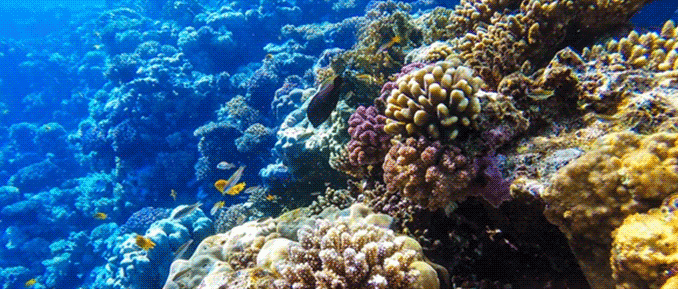
Coral reefs are some of the most extraordinary and diverse ecosystems on the planet. Taking up only a fraction of the ocean’s surface, they support about a quarter of all marine life. But their existence is continually being threatened by a variety of factors including pollution, global warming, and destructive fishing techniques.
For years, scientists have investigated various ways to save the corals, from breeding them in a lab to making them more resistant to pollution. Now, a new study suggests that epigenetic-conditioning could help restore the reefs, allowing them to repopulate in their unstable environment naturally.
Like plants and other living organisms, corals have the ability to adapt. Some have become accustomed to cold, murky waters, while others flourish in warm, shallow lagoons. Despite this, their slow growth rates and temperature sensitivity make them especially vulnerable to rapid environmental changes. With climate change on the rise, it’s feared that many coral species might not be able to genetically survive increasing water temperatures.
Researchers from NYU Abu Dhabi (NYUAD) and King Abdullah University of Science and Technology, however, have discovered that some corals can endure abrupt changes in their habitat. They found that epigenetic marks that were acquired in reef-building colonies subjected to heat stress were passed on to the offspring. This phenomenon thereby extended the organism’s capability for adapting to adverse water conditions. The study, recently published in Nature Climate Change, is the first to examine the inheritance of DNA methylation patterns in corals, more specifically in a species found in the Indo-Pacific region called Platygyra daedalea.
DNA methylation is a commonly occurring epigenetic mark that associates primarily with gene repression. It is known for playing an essential role in many biological processes and has been implicated as a mechanism involved in phenotype alterations in response to environmental change. In previous articles, we have discussed how plants inherit epigenetic information to sustain temperature fluctuations and other stressors. We have also reviewed some of the ways in which epigenetics may help animals adapt to severe climate change.
In this study, the researchers examined colonies of stony corals from two separate ocean environments. Using whole-genome bisulfite sequencing (WGBS), they measured hypermethylation of genes in mature corals and compared them to the sperm and subsequent larvae. The data showed that stress-related genes in adults strongly correlated with the survival rates and fitness levels of offspring subjected to extreme heat.
NYUAD Assistant Professor of Biology Youssef Idaghdour, who led the team, commented on how remarkable this finding is for sustaining a healthy coral colony, especially since both parents can transfer their epigenome to their progeny.
“This research shows the capacity of coral parents to positively impact the resilience of their offspring in environments that are changing too quickly,” said Idaghdour, “Our learnings in this exciting field hold great potential for the preservation of these unique ecosystems for future generations.”
Most studies estimate that the reefs will be near extinction within the next century, primarily due to the acceleration of climate change. With nearly half the world’s coral reefs already gone, there remains little hope for their continued survival. However, findings like this could help initiate a means to help corals sustain the pressures of global warming.
According to John Burt, NYUAD Associate Professor of Biology, “This study demonstrates that epigenetic changes that enhance thermal tolerance can be passed to offspring, dramatically enhancing corals’ capacity to rapidly respond to environmental change.” Future studies are needed to verify that epigenetic changes are maintained across generations and are indeed a functional advantage to the coral colonies.
Source: Liew, YJ, et al. Intergenerational epigenetic inheritance in reef-building corals. Nature Climate Change, 2020 Feb 10.
Reference: February 11, 2020.”Researchers find new method to allow corals to rapidly respond to climate change.” New York University.

